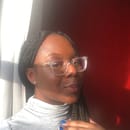I’m beautiful. My cocoa skin glistens in the sun. I’m radiant. My skin color has nothing to do with my beauty. I mean, her skin is lighter and boys talk to her but they don’t talk to me. My skin might be a little bit too dark. My skin is dirty. I’m no longer beautiful. Why can’t I be lighter?
-A Dark Girl
In the documentary Dark Girls, produced by filmmakers Bill Duke and D. Channsin Berry, colorism and it’s effect on African American women, specifically dark skinned women is explored. The filmmakers show the issues regarding this topic within the African American community by interviewing not only darker skinned women, but African American men as well. Dark Girls tells the story of the rooted stereotypes and self-loathing that African Americans uphold when it comes to darker skinned women. In the film, the introduction of the history of colorism is examined by Dr. Cheryl Grills. Grills notes that there is a bigger issue, a “bigger animal” when it relates to the way African Americans view beauty. “Forget beauty – we weren’t even considered people in the eyes of the law. Beauty is just a small piece of a much bigger animal, and until we understand that much bigger animal, we’ll never understand the issue of colorism.” explains Dr. Gill.
Many darker skinned women were interviewed to tell their stories of when they experienced colorism. After watching the film, I realized that black women faced colorism first and most importantly in their home. A young woman in the film recalls a time when her mother was bragging about her to a friend saying, “My daughter is beautiful. She’s got great eyelashes, she’s got the cheekbones, she’s got great lips.” Then the mother adds, “Could you imagine if she had lightness in her skin at all? She’d be gorgeous.” The young woman then goes on to explain how that one moment in her life caused her to feel ugly and unwanted while growing up. The concept of colorism has been taught, as if it’s to be a habit in the African American community. Not only has colorism been faced within the home, it has been faced while in the comfort of being apart of your community. Your community is supposed to be a place filled with culture and love. In the film, many African American women expressed that African American males felt a certain way toward them because of their skin color. A young man being interviewed is asked if he would date a dark skinned women or a woman somewhat darker than him. He replies saying, “Well y’know, dark skin women, I don’t really like dark skin women. Like, they look funny beside me. So y’know, I’d rather not date a dark skin woman. I’d rather light skin, pretty girl with long hair don’t care.”
So, why is that colorism is a big issue within the African American community? Many believe that slavery was the cause of this infatuation with having lighter skin, or the need to have a companion lighter than themselves. It is 2018 and colorism is still a big issue now, but the media helps to stir the pot a bit. Many darker skinned women are praised for their beauty but also shunned for the very simple fact that they are still “too dark”. Whether you’re light skin, brown skin, or dark skin, you’re beautiful. Color does not mean beauty and beauty is not the only aspect of life that gives happiness.


